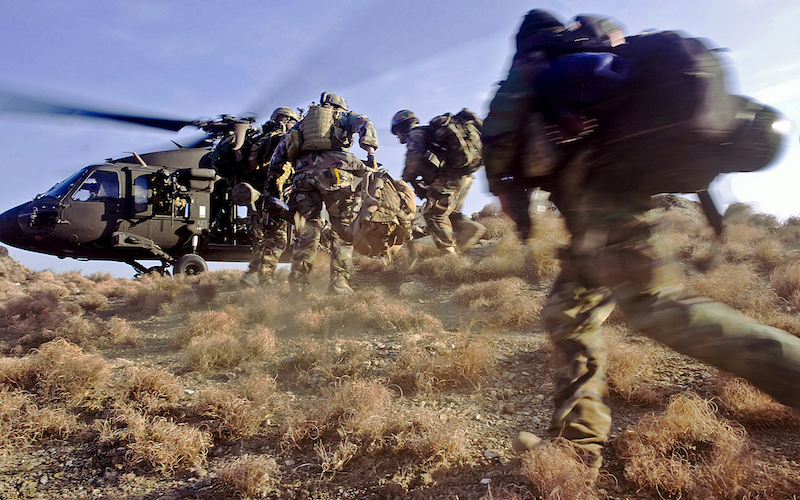
A Post-NATO Afghanistan will be Messy
The discussion of post-NATO Afghanistan is especially important in light of maintaining peace in the region. Once the NATO led International Security Assistance Force (ISAF) began removing troops, the Afghan governmnet became vulnerable. Now, if they fail to maintain law and order, the extremists will return to the region in greater numbers and claim power.
In 2014, the Obama administration announced the withdrawal of combat forces. However as the months passed, the administration started using the word “reduction” instead of “withdrawal.” The administration has plans to reinstate over a dozen strategic assistance staffs along with 10,000 battle ready troops. NATO and its allies are ready to provide 5,000 troops if the three stakeholders, the US, Afghanistan and NATO agree to allow extended boots on the ground. The overall objective of NATO in Afghanistan is to enable the Afghan authorities to provide effective security and prevent a safe haven for extremists.
The Bonn Conference in December 2001 led to the establishment of the ISAF. The ISAF was established to ensure a safe environment in the newly created Afghan Transitional Authority.
The ISAF coordinated missions worked strictly on two levels. First, its operations were intended to eliminate growing extremist threats and minimise the violence in the area and to provide extensive training, growth and capacity of the Afghan National Security Forces (ANSF).
In late 2014, the ANSF was expected to take complete responsibility of their “people and country.” This period of transition was initiated in mid 2011 and worked in over several different phases. In the beginning of 2012, the ANSF was in control of over 70% of the population covering almost two thirds of the country. At the beginning of 2013 over 85% of the population came under the security of ANSF. Now the ANSF has established full control over Afghanistan. The more capabilities ANSF has the less “combat focussed” NATO will be in the region. Thus, in the fall of 2014 it focussed on advising, training and supervising the ANSF, providing them logistical support.
The Bilateral Security Agreement (BSA) will tackle the issue of troop status on the ground after 2014. Although the deal is partly negotiated, due to current condition and regime change, it appears more like “deadlock.” In the fall of November many elderly tribe members came together for the Loya Jirga, and decided that ousted President Karzai should be the one to sign the deal.
The withdrawal of US forces from Afghanistan doesn’t mean the end of the Afghan war, writes Graeme Smith of the International Crisis Group. “Afghan forces will be tested once international support is over.” President Ashraf Ghani has to ensure broad support as his predecessor couldn’t, writes Seth Jones of RAND. Claire Lockhart of the Institute of State effectiveness writes, “the state institutions either fail or become self sufficient.” Nader Nadery of Afghanistan Research and Evaluation Organization writes, “An economic downfall is near, which will effect the economic situation in Afghanistan badly.” “It may alter the social progress done,” he adds. Daniel Markley of CFR’s blames Pakistan for cross border infiltration and notes that Pakistan will interfere in matters of Afghan policy.
But by far the biggest misconception of the Afghan war is that people in the world think it is ending. In a speech to the U.S. public, President Barack Obama said, “By the end of next year, our war in Afghanistan will be over.” He stated the same on Veterans Day. However a security report submitted to Congress which stated, “Afghanistan is now fully capable for resolving matters of security and internal relations.”
It is very likely that once the withdrawal of all the forces stationed in Afghanistan is over, the militants will organize and could threaten the peace of the entire region by drawing neighbouring countries into a war. This withdrawal will further endanger stability in Central Asia. History has witnessed this before when the Soviet forces withdrew from Afghanistan in the 1980s, and extremists filled the vacuum.
